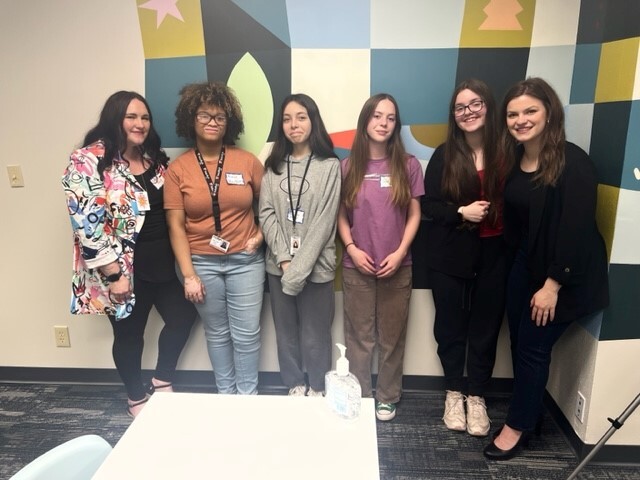by Sarah Smith-Moore, Hunger Outreach Program Specialist
Nearly two decades ago, when I began working with youth, my responsibilities were to build an afterschool space for kids to have fun, play, eat a snack, and send them on their way home. Each year, I learned a little more about the youth enrolled in my program and how to not only help them, but their whole families. I learned that some youth were navigating the divorce of their parents. I learned that some didn’t have consistent access to dinner, some had disabilities, experienced anxiety and depression, lived through the realities of poverty, and so many more intersectional experiences. Over time, my youth development career became not only providing a safe space for young people to have fun but also providing resources for families, advocating for youth in their schools, ensuring their families had enough to eat, securing transportation to programming, and more. Gradually, I saw youth programs transform and embrace positive youth development, a framework that engages youth, their families, and their communities so they feel empowered to lead, be who they are, and reach their full potential.
Prior to my time at Hunger Free Oklahoma (HFO), I was the Youth Leadership Coordinator at Camp Fire Green Country, and it was there that I learned that youth aren’t our future leaders, they are our leaders now. They are the experts of their own experiences, and their ideas are invaluable gifts to our communities. It was at Camp Fire, in partnership with Youth Services of Tulsa, that I helped develop a program that led 50 youth to plan and lead their own weekend workshops and activities at one of our camps. I am still in contact with some of them today, now adults, who were positively impacted by that program.
A year ago, Hunger Free Oklahoma had the opportunity to participate in a pilot project with Tulsa Changemakers. The goal of the project is to assist nonprofits to build pathways for authentic youth engagement in their organizations and their boards. It has been a privilege to build this intergenerational program, Youth Advisory Council, in partnership with Tulsa Changemakers and our fellow, Abigail Swank. With so much youth development expertise in our space, we knew we wanted to build a program that centered youth leadership, much like the program mentioned above. What we didn’t know was how much we would all be impacted by the end of the year.
Youth Advisory Council (YAC) learned about Hunger Free Oklahoma, and specifically, federal and state child nutrition programs. YAC’s goal was to create a youth-led project they would work on throughout the year and present to HFO staff, board members, and some community members. We quickly learned that they are passionate about school and summer meals and sought after ways to improve engagement with those meal programs. YAC members decided that their project would be to gather perspectives about school meal programs, present their findings, and use the data to guide them towards advocacy.
YAC members developed a plan:
- Build a peer survey
- Conduct outreach
- Gather data
- Create a PowerPoint presentation for the community
They created intentional questions on the survey and built a measurement scale for each question. One YAC member has graphic design skills, so he built a flyer advertising the survey. They also created an email template to send to school administration and teachers explaining their project and if they could help distribute the flyer. They each set a goal to gather a specific number of surveys by an agreed date. After viewing the data from the surveys, they found that the data matched their own perspectives, and they knew they wanted to advocate for improved meals. The PowerPoint presentation they developed shared their data findings and advocated for the Breakfast After the Bell program. The information they shared was well received and they are hopeful to continue to build their advocacy skills and expand their audience.
Positive Youth Development programs provide a framework for youth to lead, have agency over the activities they participate in, and the adults are there to guide and assist them in building new or improved skills. When we build equitable spaces for youth, we create a safe space for them to authentically share their experiences, perspectives, and ideas. When youth can trust adults in shared spaces, they will feel empowered to take on leadership roles because they know they are supported. It’s also important to highlight that partnerships between organizations have also served as support networks for Oklahoma youth. When we work together as adults, we model how to build interpersonal relationships to better our communities. YAC started as a shy quiet group, but through relationship and skill-building, they ended the year as outspoken, passionate, and engaged leaders, and we are only just beginning!
Pictured above left to right: Sarah Smith-Moore, Kianle Frazier, Brielle Contreras, Sarah Goodwin, Maddy Grimes, Abigail Swank

